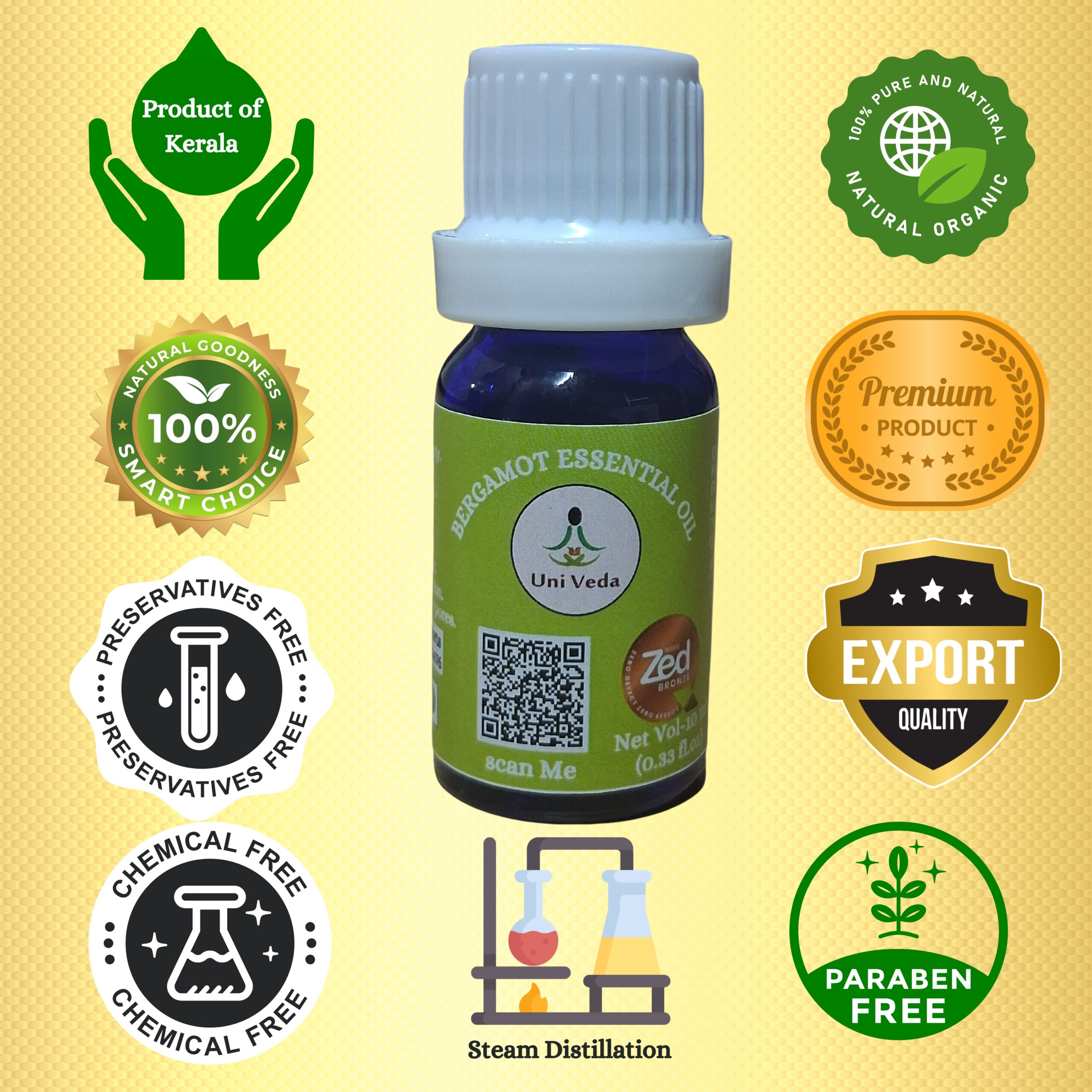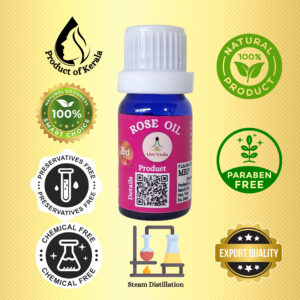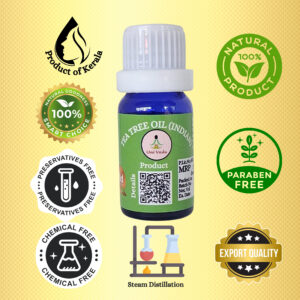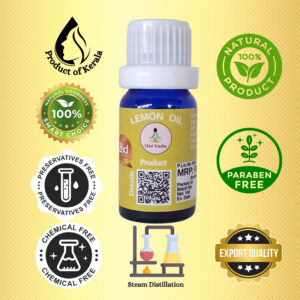OVERVIEW
Introduction to Bergamot Essential Oil: Nature’s Zesty Elixir
Imagine a sun-drenched orchard in Southern Italy, where citrus trees sway gently in the Mediterranean breeze. Among them grows the bergamot orange (Citrus bergamia), a fruit that looks like a green-gold gem and holds a treasure trove of aromatic wonders within its peel. Bergamot essential oil, extracted from this humble fruit, is like the spirited cousin in the citrus family—vibrant, uplifting, and layered with unexpected depth.
The Origin Story
Bergamot’s roots trace back to the coastal regions of Calabria, Italy, where it’s been cultivated for centuries. Named after the Italian city of Bergamo, this fruit isn’t your typical orange. It’s more of a hybrid—possibly a cross between a lemon and a bitter orange—giving it a uniquely complex profile that’s both sweet and tart.
A Symphony of Scent
Crack open the rind of a bergamot orange, and you’re greeted with a fragrance that’s nothing short of enchanting. It’s a harmonious blend of bright citrus notes and subtle floral undertones, touched with a hint of spice. This distinctive aroma is why bergamot essential oil has become a cornerstone in perfumery and aromatherapy alike. In fact, it’s the secret ingredient that gives Earl Grey tea its iconic flavor and scent.
Extraction: Capturing Liquid Sunshine
The extraction of bergamot essential oil is a delicate art. Traditionally, it’s obtained through cold pressing the fruit’s peel—a method that preserves its vibrant natural compounds. Imagine artisans carefully pressing each rind to capture the pure essence of the fruit, resulting in an oil that’s as close to nature as it gets.
Wellness Benefits: More Than Just a Pretty Scent
But bergamot essential oil isn’t just about an alluring fragrance—it packs a punch when it comes to therapeutic properties:
- Mood Booster: Its uplifting scent can help alleviate feelings of sadness and anxiety, acting like a ray of sunshine on a cloudy day.
- Stress Reduction: Inhaling the aroma may promote relaxation and ease tension, making it a perfect companion for unwinding after a long day.
- Skin Savior: With antibacterial and anti-inflammatory properties, it’s often used in skincare to help manage acne and soothe irritated skin.
- Digestive Aid: Traditionally, bergamot has been used to support healthy digestion when used appropriately.
Cultural Impact: A Legacy Across Continents
Bergamot essential oil has woven itself into various cultural tapestries:
- In Traditional Medicine: Folk medicine has long revered bergamot for its healing properties, using it in remedies for fever and digestive issues.
- In Perfumery: It’s a top note in many classic fragrances, valued for its ability to blend and harmonize other scents.
- In Tea Culture: As the defining ingredient in Earl Grey tea, bergamot bridges the gap between aromatherapy and daily rituals, infusing a simple cup of tea with a touch of elegance.
Sustainable Practices: Honoring the Earth
The cultivation of bergamot is more than agriculture—it’s a tradition passed down through generations. Many producers focus on sustainable farming practices, ensuring that this citrus gem continues to flourish without harming the environment. By choosing bergamot essential oil from reputable sources, you’re not just indulging in self-care; you’re supporting communities and ecosystems.
An Invitation to Explore
Have you ever considered how a single scent can transform your atmosphere or shift your mindset? Incorporating bergamot essential oil into your life can be as simple as adding a few drops to a diffuser or creating a personalized perfume blend. It’s like bottling up a piece of Italian sunshine to carry with you, brightening even the dullest moments.
Beyond Bergamot: The World of Citrus Oils
If bergamot piques your interest, the citrus family has a bounty of essential oils waiting to be discovered:
- Sweet Orange: Uplifting and invigorating, perfect for energizing mornings.
- Lemon: Known for its cleansing properties, bringing clarity and freshness.
- Grapefruit: A zesty option that can help revitalize and inspire.
Each oil offers its own unique profile and benefits, allowing you to tailor your aromatic experience to your needs.
A Word on Safety and Sustainability
While bergamot essential oil is a natural wonder, it’s essential to use it responsibly:
- Photosensitivity Alert: Bergamot oil contains bergapten, a compound that can make skin more sensitive to sunlight. If applying it topically, avoid sun exposure or opt for bergapten-free (FCF) versions.
- Dilution Is Key: Always dilute with a carrier oil before applying to the skin to prevent irritation.
- Quality Matters: Choose high-quality, pure essential oils from trusted suppliers to ensure you’re getting the genuine article.
Final Thoughts: Embrace the Zest
Bergamot essential oil is more than an aromatic extract—it’s an experience that engages the senses and uplifts the spirit. Whether you’re seeking to enhance your well-being, indulge in a moment of calm, or explore new dimensions in natural fragrances, bergamot offers a multifaceted journey into the heart of citrus magic.
So, why not take a chance on this zesty elixir? Brew a cup of Earl Grey, inhale its soothing aroma, and let bergamot transport you to sunlit groves and serene landscapes. It’s a simple step that might just add a sprinkle of brightness to your everyday life.
Curious to Dive Deeper?
If you’re eager to learn more about how bergamot essential oil can fit into your wellness routine, there’s a whole world of tips, recipes, and practices waiting to be explored. From DIY skincare formulations to aromatic blends that set the mood, the possibilities are as expansive as your imagination.
Remember, nature has a way of connecting us to something larger—each scent, each flavor a reminder of the beauty that exists just beyond our doorstep. Embrace it, and let bergamot essential oil be your guide on this fragrant adventure.
BENEFITS
1. Reduces Stress & Anxiety
Bergamot oil contains linalool and linalyl acetate, which help lower cortisol levels, reducing stress and promoting relaxation.
2. Boosts Mood & Fights Depression
Its uplifting citrus scent helps enhance serotonin and dopamine production, improving mood and combating anxiety.
3. Supports Healthy Skin
Bergamot oil has antibacterial and anti-inflammatory properties that help treat acne, eczema, and oily skin.
4. Improves Sleep Quality
When diffused, bergamot oil promotes restful sleep by calming the nervous system.
5. Enhances Digestion
It aids digestion by stimulating digestive enzymes, reducing bloating and indigestion.
6. Fights Infections
Bergamot oil has antimicrobial properties that help combat bacterial, viral, and fungal infections.
7. Natural Deodorizer
Its fresh, citrusy scent eliminates odors and works as a natural perfume.
8. Supports Hair Health
When added to shampoo, bergamot oil strengthens hair, reduces dandruff, and adds shine.
9. Relieves Muscle Pain
It has anti-inflammatory properties that soothe sore muscles and joint pain.
10. Boosts Immunity
Rich in antioxidants, bergamot oil strengthens the immune system and fights free radicals.
11. Reduces High Blood Pressure
Aromatherapy with bergamot helps regulate blood pressure by reducing stress and promoting relaxation.
12. Aids Weight Loss
It helps control appetite and cravings, supporting weight management.
13. Improves Respiratory Health
Bergamot oil clears nasal congestion and supports lung function when used in steam inhalation.
14. Acts as a Natural Insect Repellent
Its strong citrus aroma repels mosquitoes and other insects.
15. Relieves Headaches & Migraines
Applying diluted bergamot oil to temples reduces headache pain.
16. Soothes Sunburns & Skin Irritation
Its cooling effect helps heal sunburns and minor skin irritations.
17. Balances Oily Scalp
Adding bergamot oil to hair care products helps regulate sebum production.
18. Supports Oral Health
Its antibacterial properties help prevent gum infections and bad breath.
19. Enhances Focus & Concentration
The fresh scent of bergamot improves mental clarity and cognitive function.
20. Promotes Emotional Well-being
Bergamot oil is widely used in aromatherapy to relieve stress, anxiety, and emotional fatigue.
INGREDIENTS
Bergamot essential oil (Citrus bergamia) is extracted from the peel of the bergamot fruit through cold pressing. It contains various natural compounds responsible for its aroma, therapeutic benefits, and medicinal properties.
Key Ingredients (Active Compounds):
- Limonene (30-45%) – A powerful antioxidant with antibacterial and anti-inflammatory properties.
- Linalool (4-15%) – Helps reduce stress, anxiety, and inflammation.
- Linalyl Acetate (22-35%) – Contributes to the calming, relaxing, and skin-soothing effects.
- Bergapten (0.30-0.39%) – A furanocoumarin that can cause photosensitivity but has antimicrobial properties.
- β-Pinene (5-12%) – Enhances respiratory health and has a refreshing scent.
- γ-Terpinene (5-10%) – Offers antioxidant and antifungal properties.
- α-Pinene (1-3%) – Supports focus and alertness while acting as an anti-inflammatory.
- Terpineol (0.1-2%) – A natural antimicrobial and skin-conditioning agent.
- Geraniol (0.1-1.5%) – Known for its floral aroma and skin-rejuvenating properties.
- Neryl Acetate (0.2-1%) – Provides a sweet, citrusy scent and has mild sedative effects.
GUIDE
How to Use Bergamot Essential Oil?
- Aromatherapy: Diffuse 5-10 drops in a diffuser.
- Topical Application: Mix with carrier oil and apply to skin.
- Massage Oil: Add to a carrier oil for muscle relaxation.
- Bath Soak: Add a few drops to warm bath water.
Frequently Asked Questions (FAQs)
- What is Bergamot Essential Oil?
- Bergamot Essential Oil is a natural oil extracted from the rind of the bergamot orange (Citrus bergamia). It has a unique citrus scent with floral and woody undertones.
- What are the benefits of Bergamot Essential Oil?
- It offers various benefits, including reducing stress and anxiety, improving mood, aiding in digestion, and promoting skin health.
- How is Bergamot Essential Oil made?
- The oil is extracted through cold-pressing the peel of nearly ripe bergamot oranges, capturing the essence of the fruit’s aroma and flavor.
- Can Bergamot Essential Oil help with stress and anxiety?
- Yes, its calming aroma can help reduce stress and anxiety, making it a popular choice for aromatherapy.
- Is Bergamot Essential Oil safe to use on the skin?
- When diluted with a carrier oil, it is generally safe for topical use. However, a patch test is recommended to check for any allergic reactions.
- Can Bergamot Essential Oil be ingested?
- While it is used to flavor foods and beverages like Earl Grey tea, it should be used in moderation and preferably under the guidance of a healthcare professional.
- Does Bergamot Essential Oil help with sleep?
- Yes, its soothing properties can promote relaxation and improve sleep quality.
- Is Bergamot Essential Oil safe for children?
- It is best to avoid using it on children under six years old due to the risk of skin sensitization.
- Can Bergamot Essential Oil be used during pregnancy?
- Pregnant women should consult with a healthcare professional before using Bergamot Essential Oil, as it may not be suitable for everyone.
- Does Bergamot Essential Oil have anti-inflammatory properties?
- Yes, it contains compounds that have anti-inflammatory effects, which can help with conditions like acne and psoriasis.
- How should Bergamot Essential Oil be stored?
- Store it in a cool, dark place in a tightly sealed glass container to preserve its quality and prevent oxidation.
- Can Bergamot Essential Oil be used in cooking?
- Yes, it is commonly used to flavor foods and beverages, but should be used sparingly due to its strong flavor.
- Is Bergamot Essential Oil vegan and cruelty-free?
- Yes, it is generally considered vegan and cruelty-free, but it’s always good to check the specific brand’s practices.
- What are the main components of Bergamot Essential Oil?
- Key components include limonene, linalyl acetate, linalool, and bergapten.
- Can Bergamot Essential Oil be used in skincare products?
- Yes, it is a popular ingredient in skincare products due to its antibacterial and anti-inflammatory properties.
- How can Bergamot Essential Oil be used in aromatherapy?
- It can be diffused, added to bath water, or mixed with carrier oils for massage to enhance relaxation and mood.
- Does Bergamot Essential Oil expire?
- Essential oils do have a shelf life and can degrade over time. It’s best to use them within 1-2 years and store them properly.
- Can Bergamot Essential Oil help with digestion?
- Yes, it can aid in digestion and relieve symptoms of indigestion and bloating.
- Is Bergamot Essential Oil safe to use around pets?
- Some essential oils can be harmful to pets, so it’s best to keep Bergamot Essential Oil out of reach and consult with a veterinarian.
- Where can I buy Bergamot Essential Oil?
- It is available online our stores.






Reviews
There are no reviews yet.